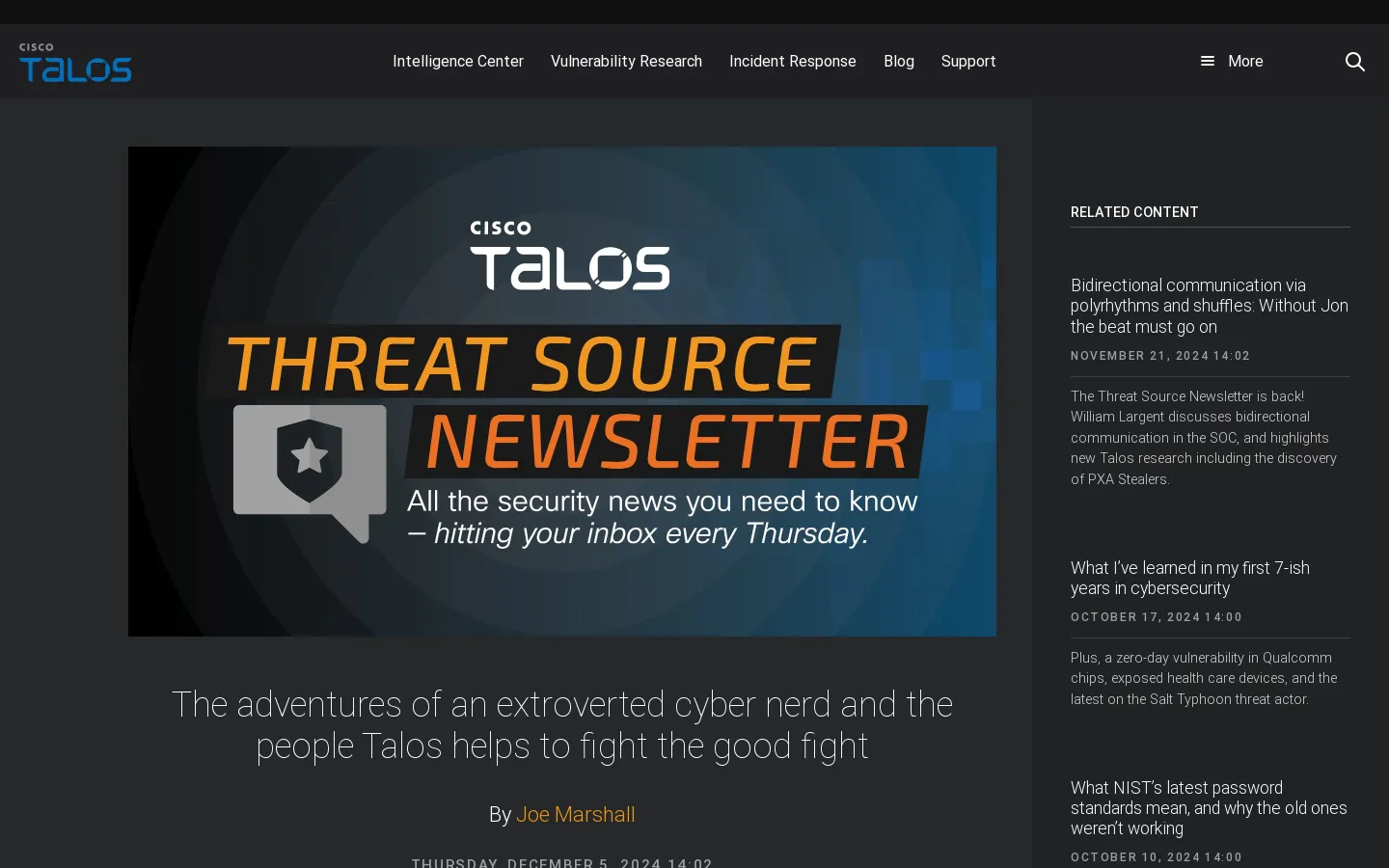
NGO-ISAC Summit Focuses on Cybersecurity for Nonprofits
/ 3 min read
Quick take - The NGO-ISAC summit focused on enhancing cybersecurity for nonprofits by addressing their unique challenges and providing tailored strategies, including a new educational tabletop exercise, to help them better defend against cyber threats.
Fast Facts
- The NGO-ISAC summit focused on enhancing cybersecurity for nonprofits, addressing their unique challenges and limited budgets.
- A Talos Senior Security Strategist introduced a custom tabletop exercise, “Backdoors & Breaches,” to educate participants on cybersecurity threats and incident response.
- Improving cybersecurity for NGOs is crucial for protecting sensitive information and maintaining stakeholder trust, ensuring their missions continue without disruption.
- Recent findings highlight vulnerabilities in major US water systems, emphasizing the need for better security measures in critical infrastructure.
- The rise of QR code phishing attacks presents new challenges, necessitating comprehensive cybersecurity strategies to combat evolving digital threats.
Enhancing Cybersecurity for Nonprofits: Insights from the NGO-ISAC Summit
In a concerted effort to fortify the cybersecurity defenses of non-governmental organizations (NGOs), a pivotal summit was held at the Ford Foundation Center for Social Justice in New York City. This annual event, organized by the NGO Information Sharing and Analysis Center (NGO-ISAC), took place just weeks before December 5, 2024. It brought together experts and stakeholders to address the unique challenges faced by US-based nonprofits in securing their digital infrastructures.
Addressing Budget Constraints in Cybersecurity
Nonprofits often operate on limited budgets, making comprehensive cybersecurity measures a challenging endeavor. The summit aimed to bridge this gap by providing tailored tools and strategies that cater specifically to the needs of civil society organizations. By focusing on enhancing security investments, the event sought to empower these organizations to better protect themselves against cyber threats.
A key highlight of the summit was the participation of a Senior Security Strategist from Talos, who introduced a custom version of “Backdoors & Breaches.” This tabletop exercise is designed to educate participants on cybersecurity threats and incident response. Through interactive learning, nonprofits can gain practical knowledge and skills necessary to defend against potential cyber attacks.
The Broader Implications for Nonprofits
The implications of improved cybersecurity for nonprofits are significant. These organizations play a crucial role in supporting various social causes, and enhancing their cybersecurity posture is vital for protecting sensitive information. By maintaining the trust of their stakeholders, nonprofits can ensure their missions continue without disruption.
As the digital landscape evolves, initiatives like the NGO-ISAC summit are essential in fostering a more secure environment for civil society organizations. By equipping NGOs with the necessary skills and knowledge, they can better safeguard sensitive information and maintain operational integrity.
Emerging Threats and Critical Infrastructure Vulnerabilities
Beyond the nonprofit sector, recent findings have revealed vulnerabilities in at least 97 major water systems across the United States. These weaknesses pose significant risks to both businesses and millions of citizens, underscoring the urgent need for improved security measures in critical infrastructure.
Additionally, new threats such as phishing attacks via QR codes have emerged. These codes can bypass traditional spam filters, directing unsuspecting users to malicious websites. As such, there is an increasing need for cybersecurity defenders to understand and mitigate these risks.
The Path Forward
The intersection of these issues highlights the critical need for comprehensive cybersecurity strategies that address both infrastructural vulnerabilities and evolving digital threats. For nonprofits, enhancing cybersecurity training can bolster defenses and protect vulnerable populations they serve. As these organizations continue their vital work, safeguarding their digital assets remains paramount.
To stay ahead of these challenges, NGOs must prioritize cybersecurity investments and leverage resources like those provided at the NGO-ISAC summit. By doing so, they can build resilience against cyber threats and ensure their continued ability to support social causes effectively.



